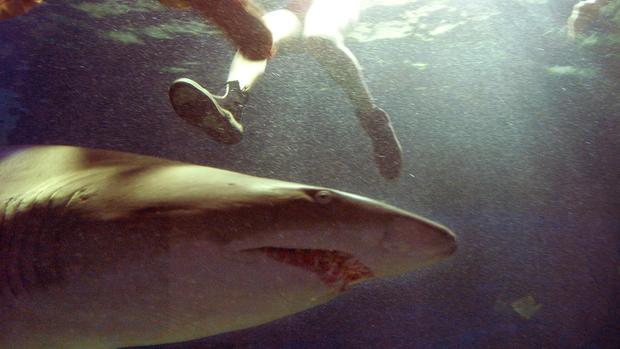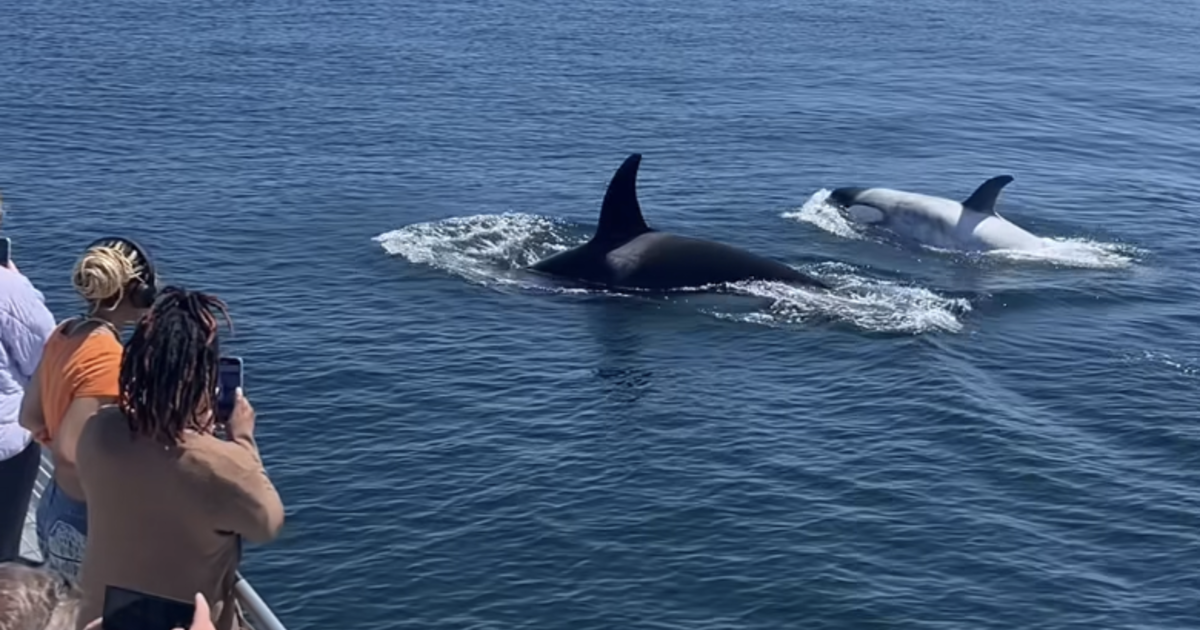Ocearch founder says recent shark sightings are a "good thing"
The shark tracking and research organization Ocearch is launching its next expedition along the shores of Montauk, on New York's Long Island. On Friday, a group of explorers will begin focusing their research on tagging juvenile white sharks in the area.
During a conversation on "CBS This Morning," expedition leader Chris Fischer spoke about the mission and the importance of keeping sharks populated in the ocean.
"They are the balance keepers," Fischer said. "If they thrive, the system thrives. No big sharks, no fish for our grandchildren."
But the growing number of shark attacks being reported on both coasts of the country have raised new concerns about beach safety. Fischer said many beachgoers have what he calls an "irrational" fear of these predators, which don't normally prey on humans.
"Don't fear the fin," Fischer said. "The fear of sharks is kind of a real primal thing we all have, but it's an irrational fear that doesn't statistically exist. It's more dangerous to make toast in the morning."
According to Fischer, spotting sharks along the coast is a good thing. It means "the system is returning towards abundance" and "there's going to be fish" for future generations to consume.
People "should be thrilled," he added.
Ocearch's mission is to learn more about the life cycle of great white sharks. For quite some time, the organization was unable to tag a male of the species. But now, Fischer says his team has two "mature males that are moving north," which will show potential mating tendencies when they are united with female sharks.
"We are learning so fast," he said. "We will nail down a 400-million-year-old secret and leverage that data for our grandchildren."
Nearly five years ago, the non-profit organization made history when they captured, tagged and released a 2,000-pound shark named Genie in the north Atlantic Ocean.
In 2012, Ocearch explorers tagged a great white shark named Mary Lee, who subsequently became a social media star as her movements were tracked up and down the East Coast. Fischer says Mary Less "shifted the conversation for sharks in the world" by leading researchers to Long Island where they encountered nine shark pups.
When asked about other mating areas, Fischer talked about a mature female shark named Lydia who has been recently swimming between Cape Cod and Nantucket. At one point, Lydia swam to Sable Island in Nova Scotia, which may be a secondary mating site.
To date, Ocearch has tagged a total of 300 sharks with GPS trackers. Researchers have completed 29 expeditions worldwide.




